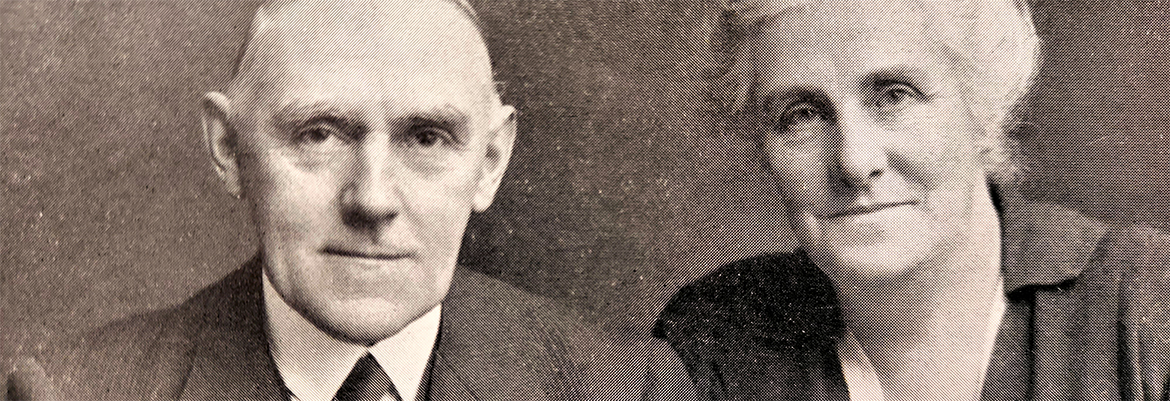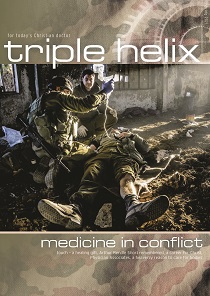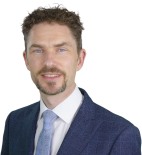Those who are regulars at the CMF National Conference will remember the Rendle Short Lecture (RSL) that has been a feature of Saturday afternoons there for many years. In fact, Prof John Wyatt's RSL in 2019 was the 60th such lecture. The change in format of CMF National Conferences for 2020 and 2021 due to COVID has disrupted this long tradition, and it seemed an opportune time to end that particular lecture series on a high note, the final lecture being given by our current President in the diamond jubilee year of the lecture.
The RSL has traditionally been introduced and chaired by the sitting President of CMF. For as long as I can remember, the introduction has included a summary of who Professor Arthur Rendle Short was and why he has been so commemorated in our traditions. However, since he died in 1953, even our oldest surviving members mostly have only passing memories of him.
For that reason, I decided to research and write a little about his life and example. What might this great Christian doctor, who lived and worked through both World Wars and was a leading light in the early years of CMF, have to teach us today?
In finding out about him, I have relied on two small books, The Faith of a Surgeon - belief and experience in the life of Arthur Rendle Short, [1] and The Christian Medical Fellowship - its background and history. [2]
Early life and influences
Arthur Rendle Short was born in Bristol and spent almost his whole life there. He was known to many as Rendle, his mother's maiden name, deriving from Cornwall. He was raised in an atmosphere of deep Christian faith that was worked out in practical service. His family were members of the Open Brethren, churches that strove to live out a faith like that of the early church and did not have ordained ministers. One consequence of this is that Rendle developed a passion for lay preaching in his teenage years, which he continued regularly until his death. He read widely and had an incredible knack for communicating great learning in a simple, direct, and memorable style.His family were intimately connected with the famous George Muller, also part of the Brethren, who established orphanages in Bristol and became renowned worldwide for his distinctive approach of never asking directly for money. The Muller orphanages are an incredible story of God's amazing provision and of George Muller's faith; Rendle's grandfather was a teacher in the orphanage.
These two influences loomed large in Rendle's life. Of eleven Christian books he wrote, the first was a description of the Open Brethren, and the last was a condensed version of George Muller's personal diary.
Medical training and marriage
Rendle did his medical training first in Bristol and then in London at University College Hospital. As a testament to his broad interests, he found time to notch up a first-class degree in geology during his training, chiefly because of his interest in contemporary debates in science and religion, such as evolution. However, he also found time for lighter subjects, such as packaging up live cockroaches to send to a group of nurses in response to their previous practical joke on him!However, he worked hard at his medical studies. He was highly successful, gaining so many scholarships that it led the medical school to adjust the regulations to prevent one student from winning more than their fair share. He spent time as a junior doctor back in Bristol and then again in London, receiving a Diploma in Tropical Medicine and his Fellowship of the Royal College of Surgeons, both in 1908. This was clearly a momentous year for him, as he also married his cousin, Helen Case, a nurse.
It seems incredible to us today that junior surgical posts in those days were unpaid, and that a surgical registrar had to find income from other means, such as teaching students. However, Rendle was talented and dedicated and eventually secured full surgeon's status in 1913.
Devotion to medical mission
Throughout their lives, Rendle and Helen were committed to supporting medical mission. Even before their marriage, they offered to go to what is now Taiwan. However, despite their evident deep faith, they were shocked to be eventually turned down as their views on infant baptism differed from those of the denomination concerned! Further efforts to go as Brethren missionaries did not materialise, mainly because the denomination decided that Rendle's rare surgical skills could not be fully utilised in the kind of simple pioneer mission stations that they could offer.The couple ploughed their efforts into supporting mission from the UK. Rendle was a regular speaker at the Missionary Study Class Movement conference, urging many young men and women to consider serving overseas. Often, he would pay the equipment costs of a missionary doctor about to leave, and on one occasion, he took time to summarise his notes from the tropical medicine course for a young doctor who did not have time to take the full course before leaving.
Support for students and the beginnings of CMF
Rendle was remembered by generations of Bristol medical students as a devoted and talented teacher, full of memorable stories to help cement his points. This interest in students spilt over into his Christian life. He was a keen supporter of the early Christian Union movements after the First World War, including the Bristol Inter-Faculty Christian Union. This became part of the Inter-Varsity Fellowship, now the Universities and Colleges Christian Fellowship (UCCF), with which CMF continues to work closely. For over 40 years, he and Helen hosted student prayer meetings in their home, and he was a regular and popular speaker at many student meetings. CMF eventually formed in 1949 as an amalgamation of the medical graduates' section of IVF, and a forerunner organisation, the Medical Prayer Union, which was formed in 1874 but was waning by the time of the Second World War. Rendle was a popular speaker at meetings of all three organisations and was the main speaker at CMF's first-ever Northern Conference at Windermere in the early 1950s, which ran for over 60 years.Surgical pioneer
The field of surgery was advancing rapidly during Rendle's early career. He took a keen interest in applying the new knowledge in physiology to the existing knowledge of anatomy and surgical technique, writing a textbook on physiology for surgeons in 1911. He gave the Hunterian Lecture at the Royal College of Surgeons in early 1914 on surgical shock. Little did he know just how vital this interest would become later that year, as he and many colleagues battled to save casualties from the fighting, both in military hospitals in the UK and field hospitals in the battlefields of France. In these extreme situations, he was involved in some of the early developments of blood transfusion.God's Word and his works
Throughout all this busy, eventful, and successful career, he continued to preach in local churches in the Bristol area and at Christian medical events. His in-depth knowledge of science combined with a deep love for and reflection on Scripture, having learnt to read both Hebrew and Greek. This meant that he could apply rare insights to some of the challenging areas where science and theology intersected. He was a sought-after speaker on issues such as Christianity and Evolution, and published books on topics such as Modern Discovery and the Bible, Archaeology Gives Evidence and The Bible and Modern Medicine.Faithful to the end
Despite his hefty workload and the many calls on his time and talents, Rendle seems to have had a very close-knit family life, ably supported by Helen. Their three children all went into medicine or nursing. Their daughter Coralie, who became a Professor of Gynaecology in Uganda and Ethiopia, recalled long walks and cycle rides, during which she would pepper him with questions. He did not let up right until the end. He spent his final full day of life, in September 1953, preaching in church, writing letters, and advising a young man on his future career and Christian service, before the pain of a fatal myocardial infarction came on. Earlier that year, his son John had proposed to the CMF General Committee 'that the Fellowship should institute an annual CMF Lecture to feature a major topic of concern to the profession and to be given by one of the more research-minded members'. [3]As CMF was in its infancy, it took some time for this suggestion to be realised. Finally, in 1959, the first Rendle Short Lecture was given by Mr W Melville Capper, who had continued Rendle Short's legacy in Bristol, on the subject of 'Some Great Christian Doctors' - a very apt title, given the influence of the man after whom the lectures were named.
Mark Pickering is a prison GP and the CEO of Christian Medical Fellowship.
































